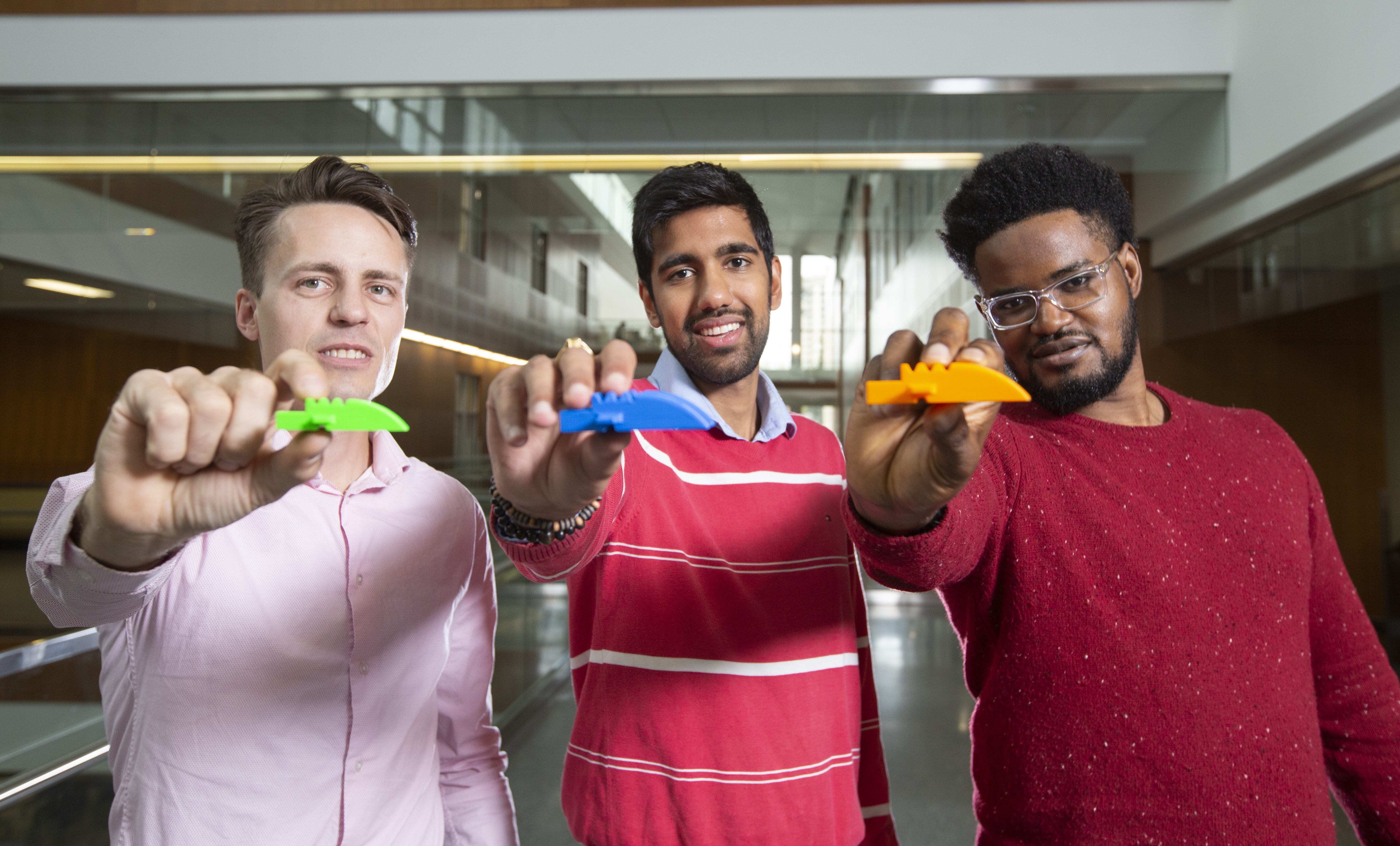
New program opens doors for student start-ups
Five teams were each assigned to explore the business potential of a new USask technology, as part of USask Innovation Enterprise's summer entrepreneurs program.
By Federica GiannelliA University of Saskatchewan student entrepreneur team has applied to incorporate as a business to commercialize a new medical oral airway device that could help save patient lives.
The team was one of five that were each assigned to explore the business potential of a new U of S technology, as part of USask Innovation Enterprise’s summer entrepreneurs program. As an incentive, the students had the exclusive right to build their own business based on the technology, with an attractive no-fee, one per cent royalty licence.
"This program was fantastic," said Cuylar Conly, a medical student and a co-founder of Soteria MedTech, the start-up working on the device for keeping an unconscious patient’s airway open during emergency care or when undergoing surgery.
"The program gives students first-hand, practical experience in entrepreneurship. We have been working with mentors from Saskatoon businesses who have incredible passion and desire to pass their experience to the next generation of entrepreneurs," he said.
With co-founders Yash Shukla, a student in the College of Engineering and Arts and Science, and Udoka Okpalauwaekwe, also a medical student, Conly will work to commercialize the new technology that helps open patients’ airways without inserting tubes in the throat, and stabilizes ventilation 40 per cent faster than current marketed devices.
Easy to use for paramedics, the device, developed by U of S medicine professor Dr. William McKay, has a simple, cost-effective design — it looks like a big Lego piece with wings.
"This product would be marketed to health regions, health-care networks and hospitals, so we are currently looking for partnerships for manufacturing and distributing it on large scale," Conly said. The plan is to hit the market by 2020.
Serese Selanders, founder and CEO of SolusGuard and ORA personal safety alarms, was thrilled to mentor the students.
"This is a rare opportunity for them to work on making a potential business out of USask world-class technology," she said. "As a USask alumna and entrepreneur, it is very important to me to bring together education and entrepreneurship for these students."
Another example of an entrepreneurship success from the program is Jessa Hughes' idea of commercializing a faba bean plant — both edible and ornamental — that she developed while working with U of S plant breeder Albert Vanderberg. The plant is 10 times smaller than regular faba bean plants but still has beautiful flowers and fragrance.
"It is perfect for anyone who likes growing flowers or vegetables, since this plant is both beautiful and edible," said Hughes, a plant-breeding master's student who worked with students Todd Thorsness, an Engineering student, and Cole Boser, who's in the Edwards School of Business, over the summer.
Hughes funded the company Vicia — from the Latin name of the bean — to bring her plant to market. The plan is to license the faba bean plant to another company that grows and sells greens, and possibly market it within the next two years at competitive prices.
The team worked with Andrée Carpentier, co-founder of 7 Shifts, to identify which business model would be most successful.
"I really enjoyed being able to help this team assess the business opportunity," Carpentier said. "I appreciated the limited timeframe students had to assess the business potential. When you're starting a new business, you have a finite amount of time to take an idea to market, and speed to market is a big factor to success."
The USask Summer Entrepreneurs program is funded by Western Economic Diversification Canada, with the goal of training more than 70 new student entrepreneurs over the next three years.
Federica Giannelli is a graduate student intern in the University of Saskatchewan Research Profile and Impact office. This content runs through a partnership with The StarPhoenix.
This article first ran as part of the 2019 Young Innovators series, an initiative of the USask Research Profile and Impact office in partnership with the Saskatoon StarPhoenix.

